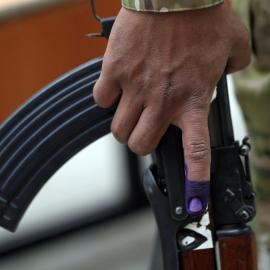To the Editor:
In "Iraq: Winning the Unwinnable War" (January/February 2005), James Dobbins writes that "the ongoing war in Iraq is not one that the United States can win." The evidence does not support this assertion. Dobbins also asserts that "[in] the eyes of the Iraqi people and of all the neighboring populations, the U.S. mission in Iraq lacks legitimacy and credibility." It is inaccurate to say that all of the neighboring populations hold this skepticism, although surely there are some to whom this ascription would apply. Dobbins further states, "Until Washington's democratization campaign can be purged of its association with pre-emption and occupation, it will have little resonance in the region." The Afghan elections in October 2004, President Hamid Karzai's laudatory comments about them, and the January 2005 Iraqi elections all contradict such an opinion.
Dobbins indulges in wishful thinking when calling for a special Iraqi envoy "to launch ... consultations [with] major U.S. allies, in particular the United Kingdom, France, and Germany." The same is true when he invokes the requirement of obtaining support from "the international community." Dobbins poses as alternatives what are complements when he proposes that "priority should be given to securing the civilian population, not hunting down insurgents." Lastly, he presents as new prescriptions what the United States is already attempting to do, namely, building "Iraqi forces under Iraqi leadership" and "training the Iraqi police."
CHARLES WOLF
Senior Economic Adviser and Corporate Fellow in International Economics, RAND Corporation
